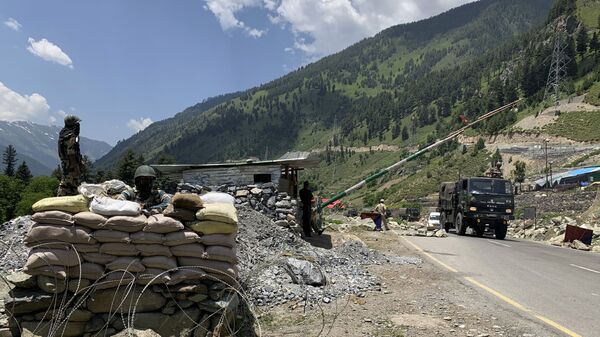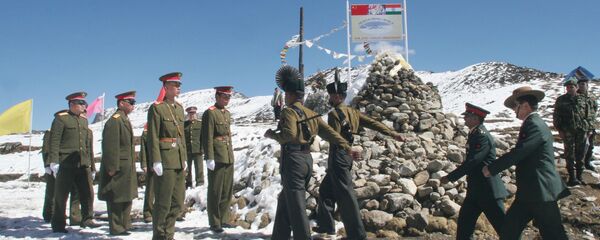Making it clear that the number of troops will not be reduced without a concrete mutual agreement, India’s President Ram Nath Kovind said on Friday that the country has strengthened its military forces along the disputed Himalayan border with China.
“My Government is vigilant and fully committed to safeguard the interests of the country. Additional forces have also been deployed at the LAC to protect the sovereignty of India”, Ram Nath Kovind said while addressing members of the parliament.
While mentioning that the June 2020 face-off with People’s Liberation of Army troops in the Galwan Valley, the president said that 20 Indian soldiers made the supreme sacrifice and laid down their lives defending the country. “Every citizen is deeply indebted to these martyrs”, he added.
The president has revealed that a few days ago, the government "placed an order with HAL for procurement of 83 indigenous fighter aircraft ‘Tejas’ worth around $7 billion".
“The parties agreed that this round of negotiations was positive, constructive and practical, which will contribute to strengthening mutual trust and mutual understanding. The party agreed to facilitate the early withdrawal of advanced troops on the border of the two countries”, a statement issued by the Indian Foreign Ministry on 25 January after the ninth round of negotiations with China reads.
Eight Conditions to Fix China Ties
On Thursday, India’s External Affairs Minister S. Jaishankar, in his most comprehensive speech on the state of India-China relations since last April, stated eight conditions to fix ties with Beijing.
The minister said that agreements already reached with China must be adhered to in their entirety, both in letter and spirit.
“Second, where the handling of the border areas are concerned, the Line of Actual Control must be strictly observed and respected; any attempt to unilaterally change the status quo is completely unacceptable”, the minister emphasised.
“While both nations are committed to a multi-polar world, there should be a recognition that a multi-polar Asia is one of its essential constituents”, Jaishankar added while indicating that China must accept the rise of India in a positive manner.
Besides these, the minister underlined that countries must respect the interests, concerns, and priorities of each other.




